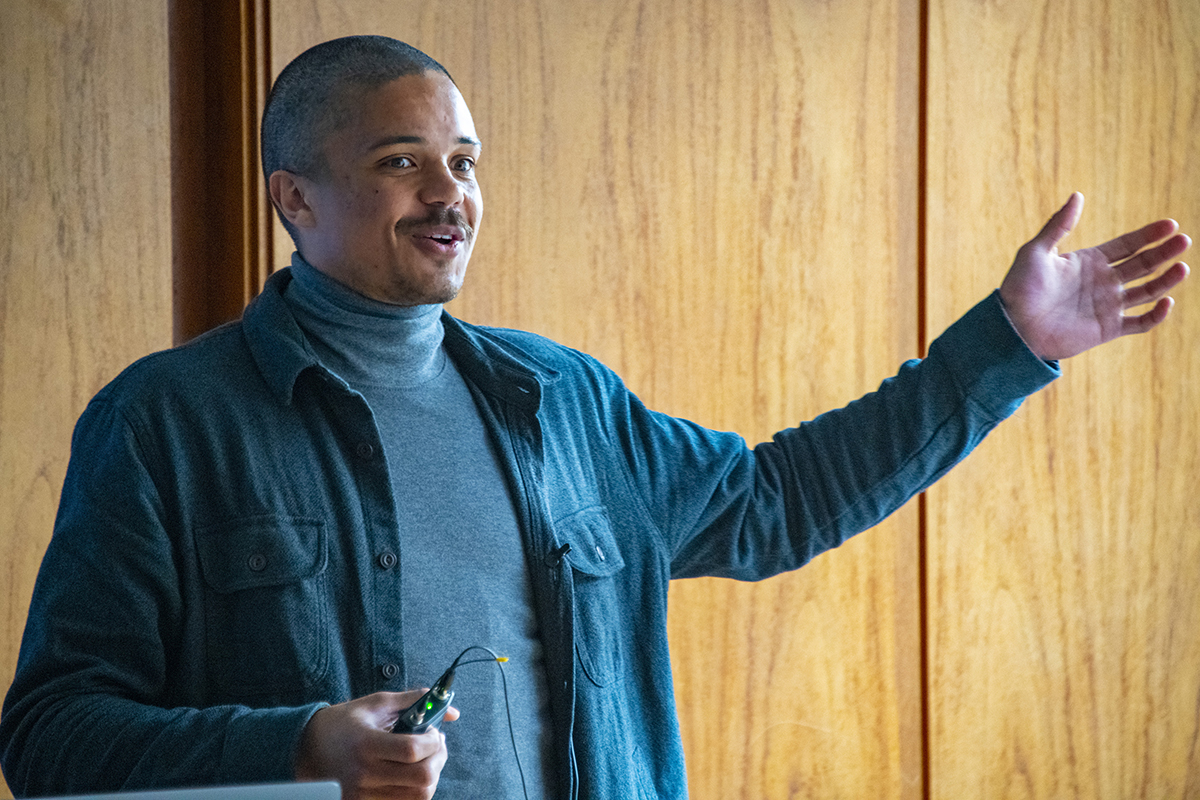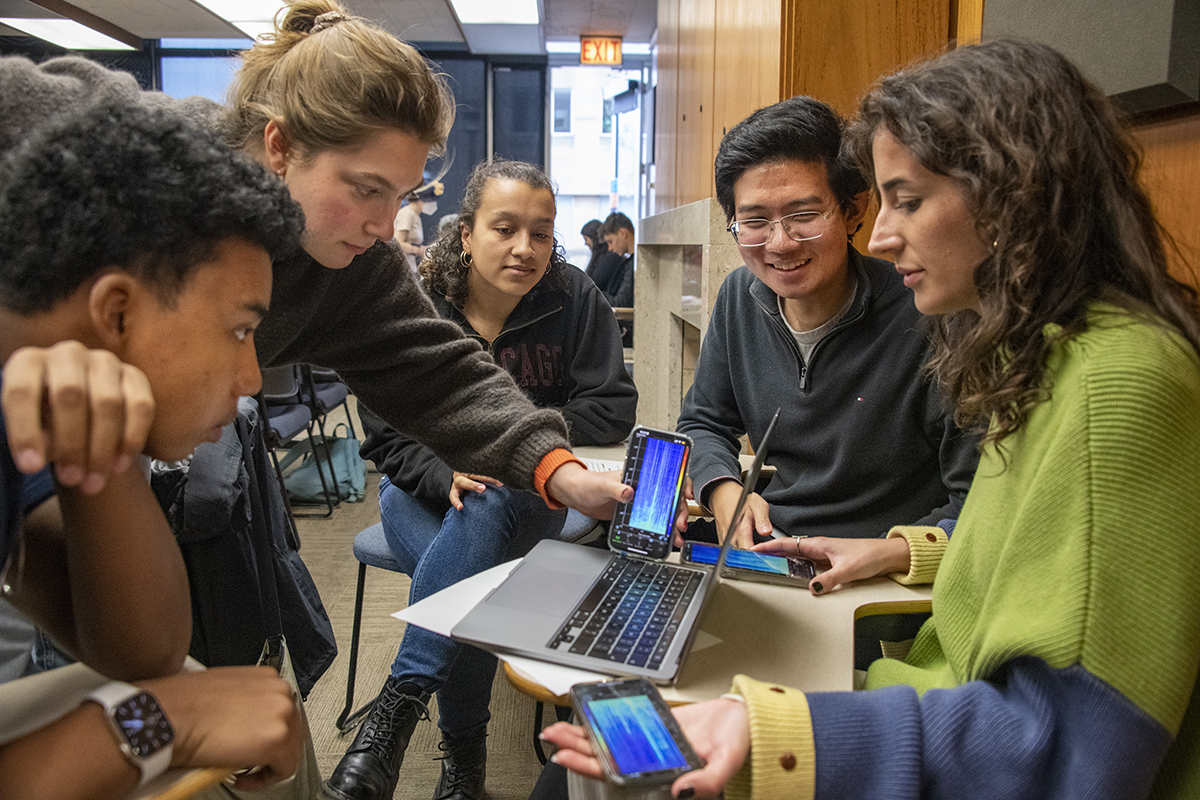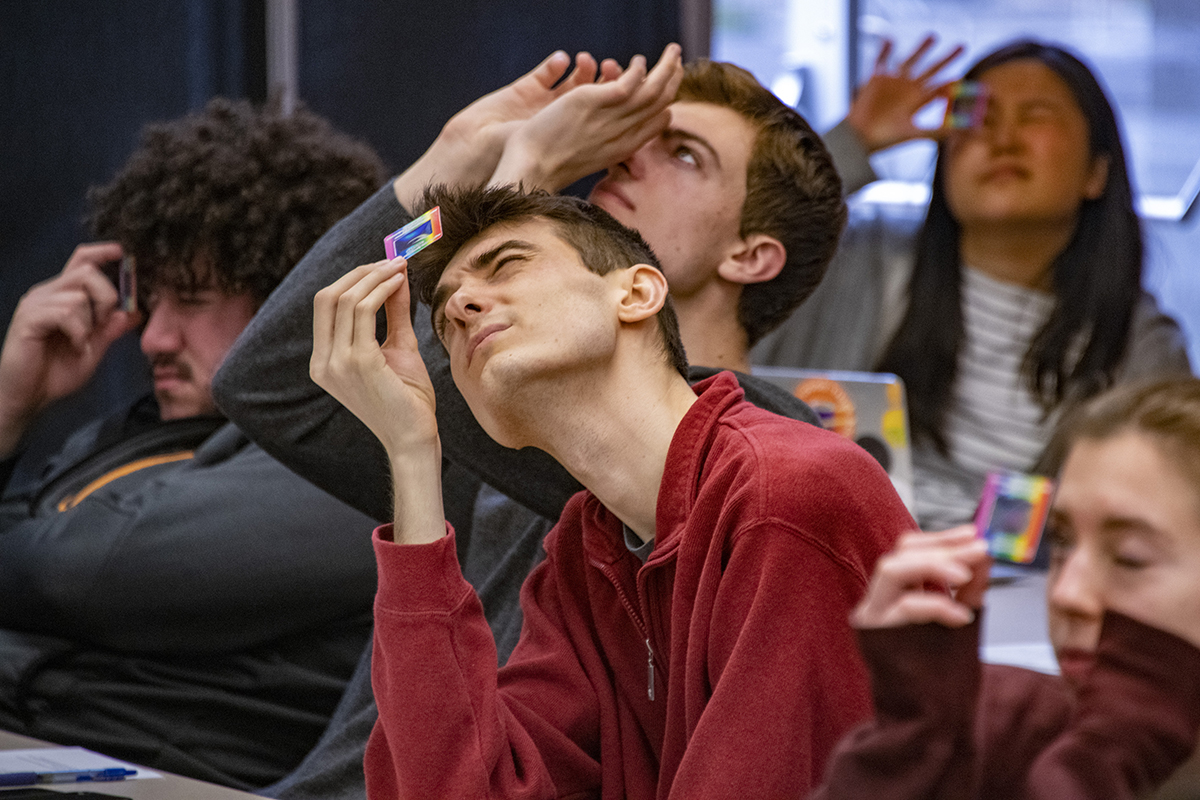A new Big Problems course offers scientific thinking to improve decision-making in a democracy
In the timely new class, UChicago undergraduates join UC Berkeley and Harvard to apply scientific reasoning in everyday life
By Sarah Steimer (photos by Joe Sterbenc)
A new Big Problems spring course, Sense & Sensibility & Science @UChicago: Scientific Thinking in a Democracy, adds a UChicago spin on how we reason about political issues. It highlights the value of interdisciplinary collaboration by showing the ways in which scientific reasoning and tools — and philosophy of science — can help both policy novices and policy experts address today’s pressing policy problems.
The course builds on a decade of experience with the class at UC Berkeley and, more recently, Harvard University and UC Irvine — but it’s been tailored for UChicago. It was originally developed and taught at UC Berkeley by Nobel Laureate and astrophysicist Saul Perlmutter, philosopher John Campbell, and social psychologist Robert MacCoun. At UChicago, it is coordinated by the Center for Spatial Data Science of the Social Sciences Division and funded by the College’s 25-year-old Big Problems program (managed by the Franke Institute for the Humanities).
“The idea is to get scientific methods out of the science labs and extract the mindsets, concepts, and tools, and then make that accessible to undergrads,” says course coordinator Julia Koschinsky, Executive Director & Senior Research Associate at the Center for Spatial Data Science. “And not only conceptually; it's not only about understanding these mindsets and concepts, but also gaining hands-on experience. This is really about building muscle memory in terms of gaining practice to apply scientific reasoning to decision-making.
UChicago’s version of the class works with UC Berkeley’s materials and was customized by UChicago instructors and teaching assistants in regular meetings with the UC Berkeley team over the course of a year. Where physics was front and center in the courses taught at UC Berkeley and Harvard, the UChicago version accentuates the behavioral science aspects of the course and adds discussions on scientific empiricism and spatial patterns.
The interdisciplinary team leading the UChicago effort includes three instructors: Reid Hastie, the Ralph and Dorothy Keller Distinguished Service Professor of Behavioral Science at the Booth School of Business; Jordan Kemp, a National Science Foundation Graduate Research Fellow in the Department of Physics; and Eamon Duede, a Postdoctoral Fellow at Harvard University who recently completed a joint PhD at UChicago’s Department of Philosophy and the Committee on Conceptual and Historical Studies of Science and Philosophy. The two teaching assistants are from cognitive science (Noa Perlmutter) and public policy/data science (Doug Williams).
Sense & Sensibility & Science teaches students how to better incorporate a scientific mindset and problem-solving techniques into their thinking and decision making. The course focuses on the errors humans tend to make, and the approaches scientists have been developing to reduce those errors as well as approaches to harnessing our human strengths. It is designed as a general introduction to scientific thinking, what makes science such an effective way of knowing, and how non-scientific and scientific thinking can go awry. There are opportunities for interaction and hands-on experience with a scientific reasoning toolkit.
“The motto of the course is show don't tell,” Koschinsky says. “There's a lot of going back and forth between lectures and experiential activities. For instance, the third class is called Senses and Instrumentation, and it's about how we need to use instruments to go beyond our senses. The topic is introduced by Jordan Kemp, a physicist, and then there are several activities with equipment from the Astronomy Department that let students experience movement that can only be captured by slow motion cameras or light spectra that require diffraction glasses.”
A core mindset of the course is to teach students how to not fool themselves, or reduce the likelihood of fooling oneself: scientific methods are devices that are constantly redesigned as new challenges come up. But that also means getting comfortable with being wrong — something that the instructors hope to model to students by engaging alternative perspectives.
This is balanced by the can-do spirit of science. Other core concepts in the course include the purpose and limitations of science, dealing with noise and uncertainty, human reasoning quirks, and more.
“I find it so inspiring to see there are a teachable set of tools we can use to think better both individually and collectively,” Noa Perlmutter says. “I’m excited to share that sense of optimism and the idea that we can become more effective in understanding and changing the world with everyone who will take the class.”
Of course, the current political turmoil in the U.S. and globally played a role in the desire to offer such a class, designed around the ability to use scientific reasoning to address political problems.
“Everyone who teaches the course felt like they wanted to step up and do something to help strengthen democratic debate,” Koschinsky says. “It’s our way of contributing to more reasoned debate, both in terms of mindsets as well as tools.”
 THE UNIVERSITY OF CHICAGO
THE UNIVERSITY OF CHICAGO




